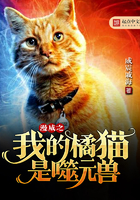During the brief reunion lunch, Li constantly put food in his children’s bowls. “Havemore,” he kept urging them. “The foods we often have on the construction site are steamedbuns, soup, potatoes and cabbage. Meat is rare.”
Although they are farmers, Li and Zhang’s land does not produce enough to feed thefamily. They own just 2 mu (0.1 hectare) of land, on which grows corn and rice.
“With the soaring prices of seeds and fertilizers, our yearly income after toiling on thefields is just 2,000 yuan,” said Li.
Thousands of young farmers find it hard to eke out a living from their land and mustmove to cities in search of extra cash. Li is no longer a farmer in the traditional sense andgoing home for Lunar New Year is more like a holiday for him. He returns once or twice ayear, often staying for only a few days.
“Construction workers in Beijing have to work under the baking sun in summer andsleep in cold huts in winter. But each month I get 1,500 yuan, which is my entire annualincome in the village,” he said.
Like many villages and small towns, most of the year only women, children and theelderly can be found in Nanhedian. The town only comes to life at Spring Festival.
When Jingjing returned to school after lunch, Li bought a large barrel of soya oil,sunflower seeds and cakes from a nearby grocer in preparation for a visit to his in-laws inthe next town, which is a 30-minute motorbike ride away.
“I remember when I was young I had to ride half a day to the next town by bike on amud road. Now even the poorest family has a motorbike, so getting around is much moreconvenient,” said Zhang.
The freezing winters, however, have not improved. As homes south of the YangtzeRiver do not have central heating, it is still common to see families in yards circling firesmade of tree branches and hay.
Zhang’s parents were playing poker in the yard when she arrived with Li andChenchen. Her aging father quickly lit some branches in a metal bin and stood six smallchairs around it, while her mother brought out sweet potatoes.
Li’s father-in-law is over 60 years old but still worked on construction sites in Beijinguntil 2009. “I am too old for that kind of work now,” said the grandfather as he addedmore branches to the fire.
As they ate, Li told his attentive audience about the changes in the capital during theyear of 2009. His parents-in-law invited the family to have dinner - or as people in Henancall it, “eat soup” - but Li declined. It was getting dark and the winding country roads haveno street lamps, so he wanted to return home.
The couple collected Jingjing from school and the family enjoyed dinner in a smallnoodle shop close to their home.
“Most of the workers on my site are young people and I’m probably one of the oldestones there,” said Li as he began to ponder his return to Beijing. “The children are stillyoung and I need to earn more money if we want to send them to college. I have morethan 10 years’ experience in construction and have learned a lot in Beijing. I hope to oneday become a boss myself and organize my own construction teams.”
About 4 million laborers migrate to Beijing from across the country every year towork in various fields, according to the National Bureau of Statistics. The majority spendless than one month with their families.
Li will leave shortly after Spring Festival. He does not know when he will return next.
February 12, 2010
Unlike parents, young migrants won’t take their fate lying down
Hukou struggle is fueling frustration among new generation of workers.
He Na reports in Beijing.
Sun Wei was born and raised in far Northeast China, but you would not be able to tellfrom his strong southern accent. After more than six years in Shenzhen, a metropolis inGuangdong province, he said he has totally shed his “countryside skin” in an effort to fit in.
“I speak like this on purpose. Sounding like Shenzhen people is a way to protectmyself,” said the 28-year-old from Yong’an village in Jilin province.
However, despite his grand plans for success, changing his accent is one of the fewthings he can say he has actually achieved in more than half a decade in the city.
Sun quit his studies after graduating middle school and went through several jobs -barbershop apprentice, waiter, security guard, salesman - before heading south. In 2009,he even borrowed money from family and friends to rent a 10-sq-m stall in a market toopen an electronics store, but the business was a financial disaster and soon closed.
“I’m fed up with a life in which I am ordered around,” he said. “Why was I born in arural family and destined to do the hard work, while city youths live a comfortable life? It’sunfair.”
He is among about 100 million “new-generation” migrant workers who are growingfrustrated by an inability to “better themselves” by gaining permanent residency in largecities, say analysts.
The term “new generation” - coined in 2001 by Wang Chunguang, a researcherwith the Chinese Academy of Social Sciences’ institute of sociology - refers to migrantworkers born in the countryside in the 1980s and 1990s, who moved to cities straight aftergraduating from middle schools and were never involved in farming. The definition waslater stretched to include children of migrant workers, who were born and raised in cities.
There are an estimated 230 million migrant workers in China.
Almost half were born after 1980 and about 40 million after 1990, according tofigures from the Ministry of Human Resources and Social Security.
Young migrant workers are different from their parents. “The new generationhas the greatest intention to become urban residents and their problems can only besolved by making them such,” said Gu Shengzu, an economist and vice-president of theDemographic Society of China.














